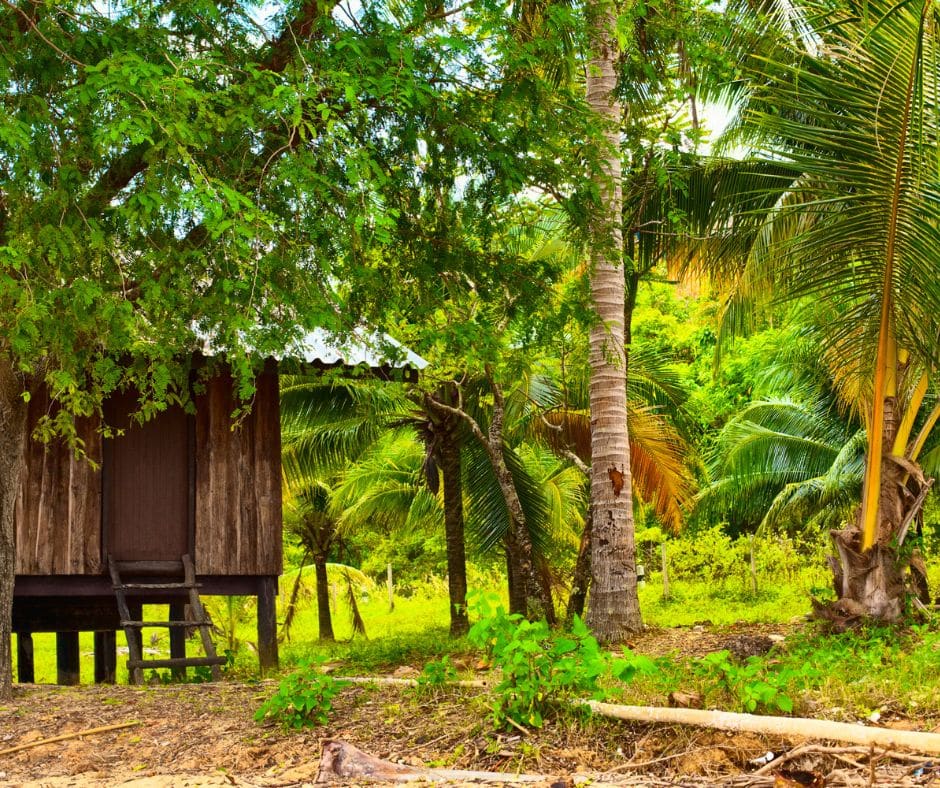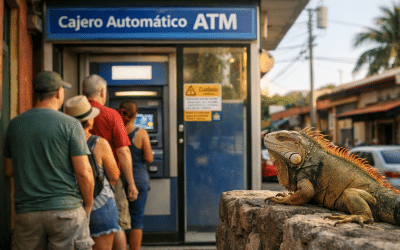The new frontier of real estate speculation: buying and reselling untouched jungle properties in Costa Rica
There’s a whisper running through the mountain trails and jungle clearings of Costa Rica — a modern-day gold rush, minus the pickaxes. Instead of digging for gold, people are buying fincas, or raw land, with dreams of fast flips and juicy profits. But is it just a romantic idea wrapped in palm fronds, or can flipping raw land actually work as a business model? With rising interest from foreign investors, low upfront costs, and a growing demand for space away from the crowds, raw land is getting attention as the next big play in tropical real estate. But the terrain—literal and financial—is far from flat.
What does flipping raw land actually mean?
Flipping raw land means buying undeveloped property and reselling it for a profit—without building on it.
Unlike traditional home flipping, this strategy skips the headaches of construction. It’s all about timing, location, and paperwork. Buyers often look for:
- Jungle or farmland near up-and-coming areas
- Parcels with river, mountain, or ocean views
- Properties that can be legally subdivided
- Land near future infrastructure (like roads, bridges, or water access)
Why are people flipping fincas in Costa Rica?
People are flipping fincas in Costa Rica because prices are still relatively low and demand is rising for nature-connected lifestyles.
With the trend toward remote work, wellness retreats, eco-living, and privacy, many investors are betting that land in rural Costa Rica will continue to appreciate. Buyers are also drawn by:
- Minimal property taxes
- Flexible ownership laws for foreigners
- A growing market of buyers from the US, Europe, and Canada
- Government support for sustainable tourism and development
What risks come with flipping raw land?
The biggest risks are legal confusion, zoning issues, and lack of infrastructure.
It’s not always a straight path to profit. Before buying raw land, watch out for:
- Unclear land titles or ownership disputes
- No road access or legal “right of way”
- Agricultural zoning restrictions
- Land located inside protected areas
- Unexpected squatters (yes, it still happens)
One mid-flip disaster story involved a buyer who learned—after closing—that their “perfect jungle lot” sat on indigenous territory. Not only was resale impossible, but it also came with serious legal consequences.
How can you add value to raw land without building?
You can add value by securing legal access, clearing part of the land, or obtaining permits for development.
Even without putting up a single wall, you can boost resale value by:
- Cleaning up the title and making it corporation-ready
- Having the property surveyed and boundaries clearly marked
- Getting water letters or electricity permits in place
- Creating subdivision plans or drawings
- Adding a gravel access road or visible signage
These steps give potential buyers peace of mind, and they don’t require a hammer or cement truck.
What makes a finca a good flip candidate?
A good finca for flipping is near future development, has natural appeal, and clear legal documentation.
When scouting land, look for:
- Views, rivers, waterfalls, or old-growth trees
- Access to a main road or future infrastructure
- A high-elevation location with cooler climate appeal
- Neighbouring properties with existing or planned development
- Flat or gently sloped terrain that’s easy to subdivide
How long does it take to flip land in Costa Rica?
Flipping raw land can take anywhere from 6 months to 3 years depending on your prep work and the local market.
If you have a solid exit strategy and a network of potential buyers, faster flips are possible. But if you’re targeting high-end foreign buyers or need to sort out permits, expect a longer timeline.
Frequently Asked Questions (FAQ)
Can foreigners legally buy raw land in Costa Rica?
Yes, foreigners have the same land ownership rights as locals in most cases, except for maritime zone properties.
What are the closing costs when buying land?
Plan for 3% to 5% of the purchase price, covering legal fees, transfer tax, and registration.
Do I need to visit Costa Rica to buy land?
Not always. Many buyers purchase remotely using trusted attorneys and power of attorney, but an in-person visit is strongly recommended.
How do I avoid buying land with legal problems?
Hire a real estate attorney early, request a full registry report, and never skip due diligence—even if the price is tempting.
Can I finance a raw land purchase in Costa Rica?
Financing is rare. Most land deals are cash, although private seller financing is sometimes available.
There’s something both thrilling and unnerving about standing on untouched jungle land, imagining its future as a thriving eco-lodge, community farm, or luxury retreat. Flipping fincas isn’t just about profit—it’s a game of vision, timing, and knowing how to cut a trail through red tape. For those with a knack for spotting hidden value and a little patience, Costa Rica’s raw land might just be the real estate frontier worth exploring. Just don’t forget your machete—and your lawyer.







